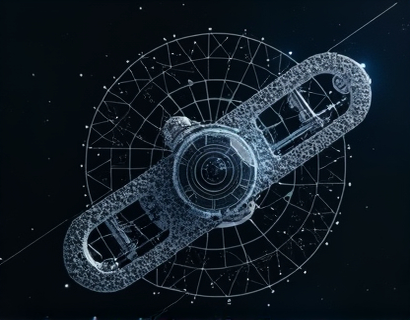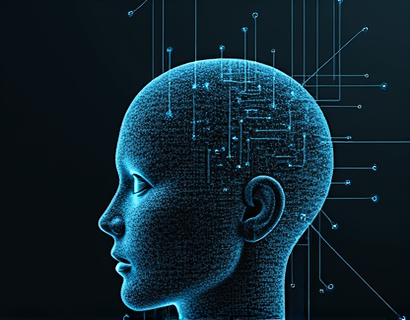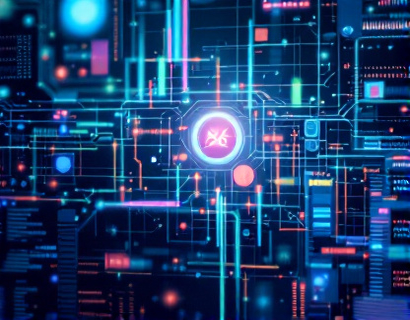Decentralized Organization Dynamics: Mastering the Advanced Software Stack for Universal Governance and Efficiency
In the rapidly evolving landscape of technology and organizational structures, decentralized systems have emerged as a transformative force, offering a new paradigm for governance, collaboration, and efficiency. This guide delves into the intricate dynamics of decentralized organizations, focusing on how advanced software can empower the creation and management of universal decentralized entities. For those passionate about decentralized systems, understanding the software stack that underpins these organizations is crucial for harnessing their full potential.
The concept of decentralized organizations, or Decentralized Autonomous Organizations (DAOs), represents a significant shift from traditional hierarchical structures. By leveraging blockchain technology and smart contracts, DAOs enable a more democratic and transparent form of governance. However, the success of these organizations hinges on the effectiveness of the software stack that supports their operations. This article explores the key components of this software stack, providing insights into how they enhance governance, foster collaboration, ensure transparency, and boost efficiency.
Foundational Blockchain Technology
At the core of any decentralized organization is blockchain technology. Blockchain serves as the decentralized ledger that records all transactions and interactions within the organization. Its immutable and transparent nature ensures that every action is traceable and verifiable, reducing the risk of fraud and increasing trust among participants. The choice of blockchain platform is critical, as it determines the scalability, security, and interoperability of the organization.
Popular blockchain platforms like Ethereum, Binance Smart Chain, and Polkadot offer different features and capabilities. Ethereum, with its extensive smart contract ecosystem, remains a leading choice for building complex decentralized applications. Binance Smart Chain provides faster transaction speeds and lower fees, making it suitable for applications requiring high throughput. Polkadot, on the other hand, focuses on inter-blockchain communication, enabling seamless interaction between different blockchain networks.
Smart Contracts for Automated Governance
Smart contracts are self-executing contracts with the terms of the agreement directly written into code. They automate and enforce the rules and processes within a decentralized organization, reducing the need for intermediaries and manual intervention. By programming specific conditions and outcomes, smart contracts ensure that actions are taken precisely when certain criteria are met, enhancing efficiency and reducing human error.
For instance, in a DAO, smart contracts can manage voting processes, fund distribution, and access controls. They can automatically execute transactions based on predefined rules, ensuring that governance decisions are implemented promptly and transparently. This automation not only speeds up operations but also minimizes the potential for disputes and misinterpretations.
Decentralized Identity Management
Identity management is a critical aspect of decentralized organizations, ensuring that only authorized participants can access and interact with the system. Decentralized identity solutions, such as Self-Sovereign Identity (SSI), empower individuals to control their digital identities without relying on central authorities. This approach enhances privacy and security, as users have full control over their personal data and can choose what information to share.
Implementing a decentralized identity system involves the use of public-key cryptography and blockchain-based identity stores. Users generate and manage their own cryptographic keys, which serve as the foundation for their digital identities. This system ensures that identity verification is secure and tamper-proof, reducing the risk of identity theft and unauthorized access.
Enhanced Collaboration Tools
Collaboration is a cornerstone of decentralized organizations, and advanced software tools play a vital role in facilitating effective communication and cooperation. Decentralized collaboration platforms integrate various functionalities, such as messaging, file sharing, project management, and task tracking, all within a single, decentralized ecosystem.
These platforms often utilize decentralized storage solutions like InterPlanetary File System (IPFS) to ensure that files are stored and accessed in a distributed manner, enhancing resilience and reducing reliance on central servers. Additionally, decentralized communication protocols, such as Matrix, enable secure and private messaging, ensuring that sensitive information remains protected.
One notable example is the use of decentralized social networks and forums, which allow members to engage in discussions and share resources without the constraints of centralized platforms. These tools foster a sense of community and collective ownership, aligning with the core principles of decentralized governance.
Transparency and Accountability Mechanisms
Transparency is a fundamental value in decentralized organizations, and the software stack must support mechanisms that ensure all activities are visible and auditable. Blockchain's inherent transparency is complemented by advanced logging and monitoring tools that track transactions, decisions, and user activities in real-time.
These tools provide a comprehensive audit trail, allowing members to verify the integrity of the organization's operations. Blockchain-based governance platforms can also incorporate reputation systems and incentive mechanisms to encourage positive behavior and accountability. For example, token-based rewards can be distributed to members who contribute valuable insights or assist in conflict resolution, fostering a culture of cooperation and mutual support.
Scalability and Interoperability
As decentralized organizations grow, the software stack must scale to handle increasing loads and maintain performance. Scalability solutions, such as layer 2 protocols and sharding, are essential for managing high volumes of transactions and data without compromising speed or security. These technologies distribute the workload across multiple nodes, ensuring that the system remains efficient and responsive.
Interoperability is another critical aspect, enabling different blockchain networks and decentralized applications to communicate and work together seamlessly. Cross-chain bridges and protocols like Polkadot's Relay Chain facilitate this interoperability, allowing for the transfer of assets and data between disparate systems. This capability is vital for building a connected ecosystem of decentralized organizations, where resources and expertise can be shared and leveraged effectively.
User-Friendly Interfaces and Onboarding
To ensure widespread adoption and participation, decentralized organizations must provide user-friendly interfaces and streamlined onboarding processes. Advanced software should include intuitive dashboards and guided tutorials that help new members understand and navigate the system. This approach reduces the learning curve and encourages more individuals to engage with the organization.
Additionally, incorporating multilingual support and accessibility features can make the platform more inclusive, welcoming participants from diverse backgrounds. By prioritizing user experience, decentralized organizations can build a robust and engaged community, driving long-term success and growth.
Security and Risk Management
Security is paramount in decentralized organizations, as vulnerabilities can have far-reaching consequences. The software stack must incorporate robust security measures, including regular audits, penetration testing, and the use of secure coding practices. Implementing best practices such as least privilege access, encryption, and multi-factor authentication can significantly enhance the security posture of the organization.
Risk management frameworks should also be integrated into the software stack, allowing organizations to proactively identify and mitigate potential threats. This includes monitoring for unusual activity, setting up alerts for suspicious behavior, and establishing clear incident response protocols. By staying vigilant and prepared, decentralized organizations can safeguard their operations and maintain the trust of their members.
Conclusion
Mastering the advanced software stack is essential for building and managing successful decentralized organizations. By leveraging blockchain technology, smart contracts, decentralized identity management, collaboration tools, transparency mechanisms, scalability solutions, interoperability protocols, user-friendly interfaces, and robust security measures, these organizations can achieve universal governance and efficiency. As the field continues to evolve, staying informed and adaptable will be key to harnessing the full potential of decentralized systems.










































